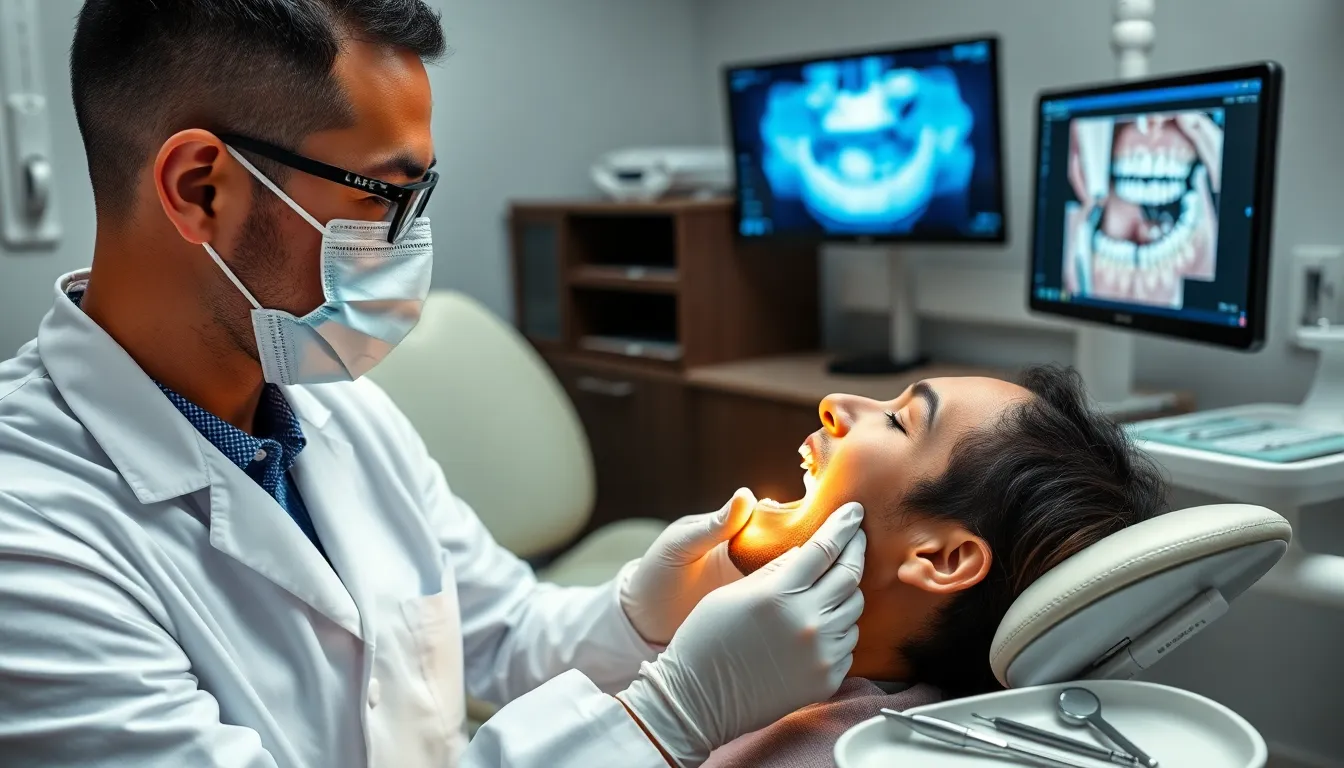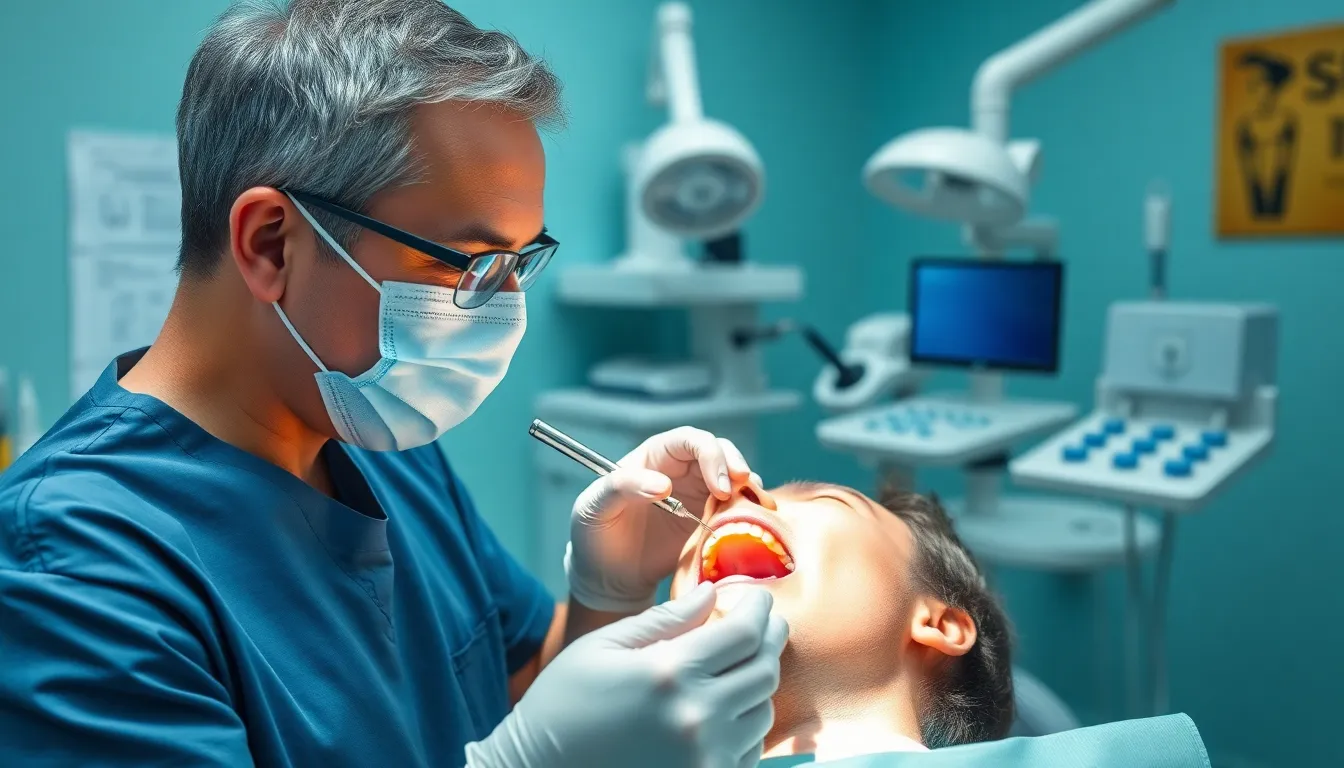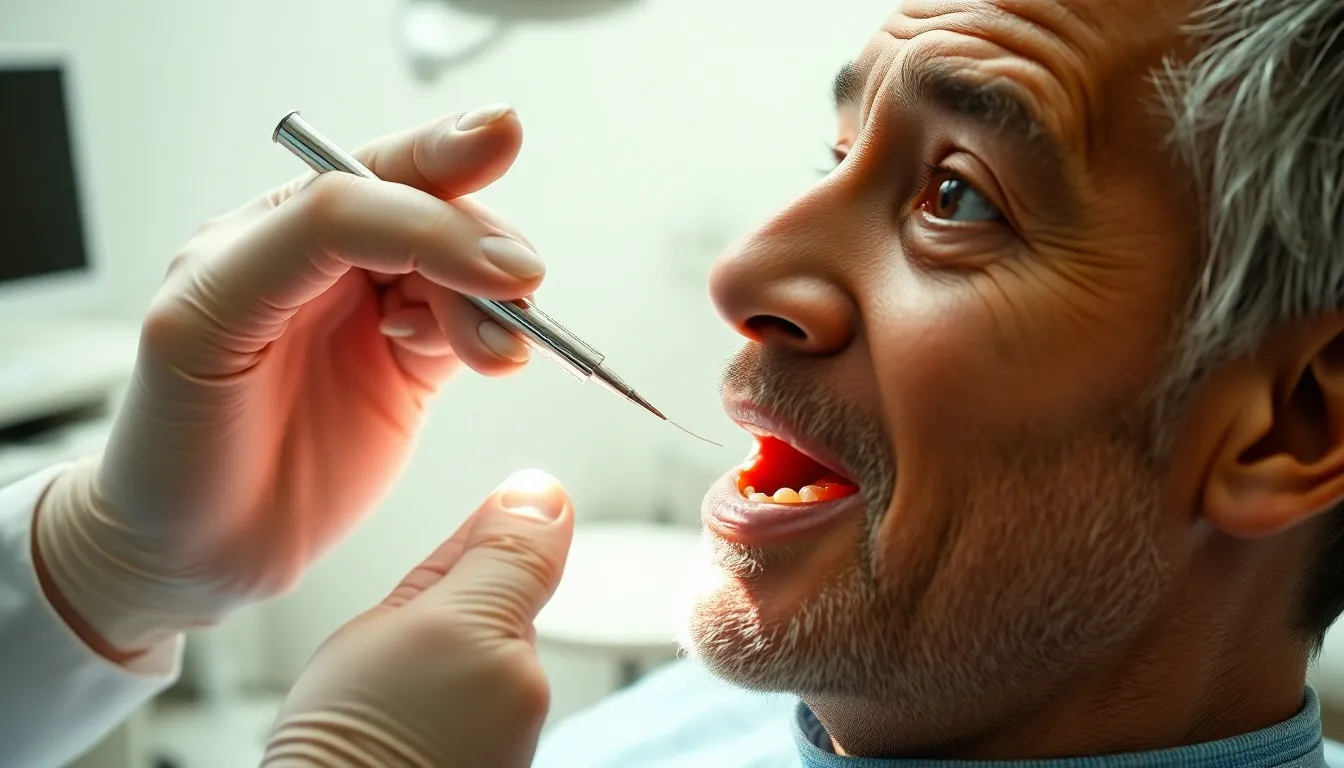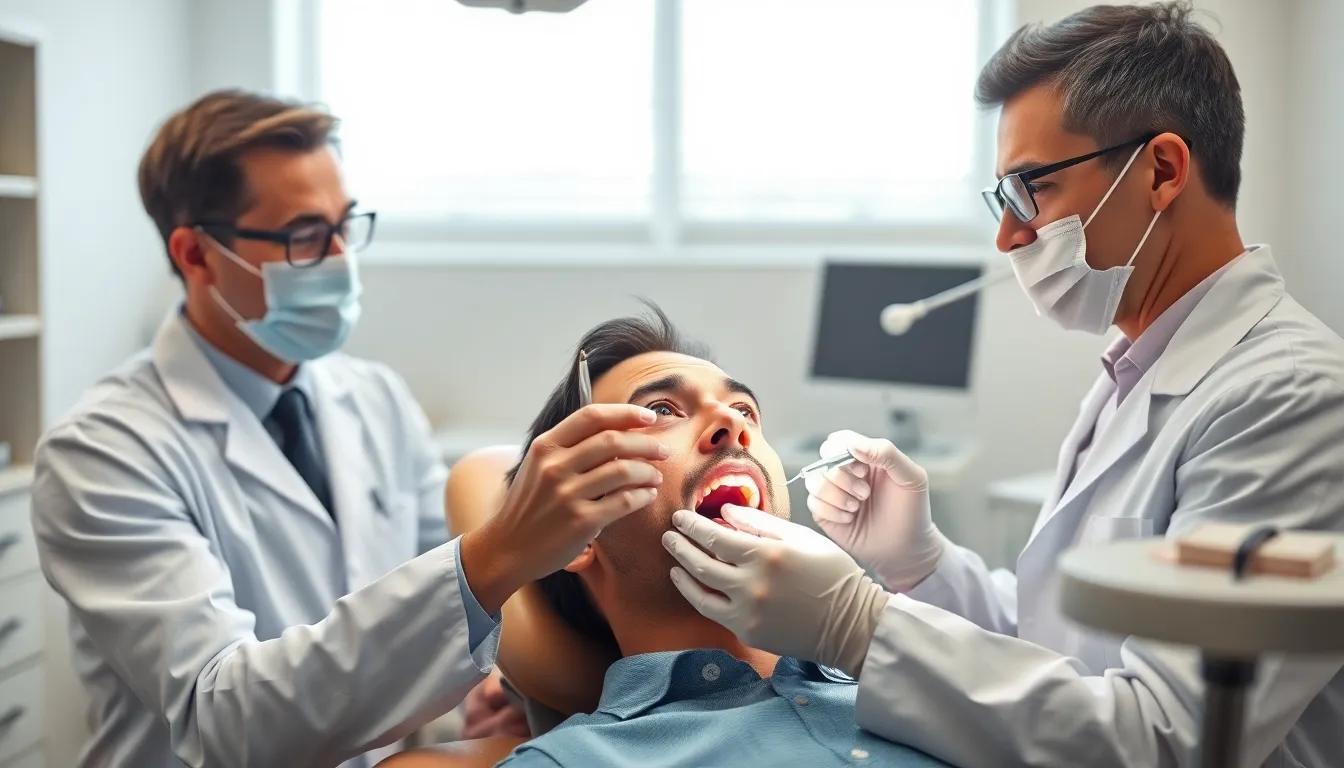Wondering how much it costs to fix a cracked tooth? That sudden sharp pain from a dental injury can be as shocking as the potential bill you might face. Understanding the price range beforehand can help you prepare financially for this unexpected dental emergency.
A cracked tooth requires prompt attention to prevent further damage and infection. The cost to repair it varies widely depending on several factors including the severity of the crack, the treatment method needed, your location, and your dental insurance coverage. From simple bonding procedures to more complex crowns or root canals, treatment options range from $300 to several thousand dollars. Let’s break down what you might expect to pay for different cracked tooth repair methods.
Understanding Cracked Teeth: Types and Severity Levels
Cracked teeth come in various forms, each with different implications for treatment approaches and costs. Identifying the exact type and severity of your tooth crack helps determine the most appropriate repair method and gives you a clearer picture of potential expenses.
Hairline Cracks vs. Severe Fractures
Hairline cracks represent minor damage that often affects only the outer enamel layer. These superficial cracks, known as “craze lines,” typically don’t cause pain and may require minimal treatment costing $100-300 for bonding procedures. Moderate cracks that extend deeper into the tooth structure usually necessitate dental crowns, with prices ranging from $800-1,500 per tooth depending on materials used. Severe fractures that reach the tooth’s nerve or extend below the gumline represent the most serious category, often requiring root canal therapy ($700-1,500) plus a crown or even extraction ($150-300) and replacement with an implant ($3,000-5,000).
Dr. Harris recalls a patient named Sarah who initially ignored what she thought was just a tiny hairline crack. “She came in months later with important pain, and what had started as a simple craze line had progressed to a fracture requiring both a root canal and crown. The treatment cost tripled compared to what she’d have paid for early intervention,” he explains.
How Cracks Affect Tooth Structure
Tooth structure consists of multiple layers that respond differently to damage. The outer enamel layer can develop cracks that don’t immediately compromise tooth integrity but may deepen over time. Cracks extending into the dentin (middle layer) typically cause temperature sensitivity and pain during chewing, signaling more serious damage requiring prompt attention. The most severe cracks reach the pulp chamber containing nerves and blood vessels, causing persistent pain and increased risk of infection.
Damage patterns vary based on tooth location and function. Molars endure the greatest chewing forces and frequently develop cracks from grinding or biting hard objects. Front teeth more commonly suffer trauma-related fractures. Each crack pattern affects treatment complexity – vertical cracks running from the chewing surface toward the root typically cost more to repair than horizontal cracks confined to the crown portion.
Average Cost to Fix a Cracked Tooth

Repairing a cracked tooth costs between $100 and $6,500 depending on the severity of damage and treatment method. These figures represent nationwide averages in the US across various dental procedures used to address cracked teeth.
Price Range for Different Treatment Options
Dental bonding offers an affordable solution for minor cracks, typically costing $100-$600 per tooth. This procedure uses tooth-colored resin to restore the appearance and function of slightly damaged teeth.
Dental veneers provide a more comprehensive cosmetic solution, with composite veneers ranging from $250-$1,500 and porcelain veneers costing $800-$2,500 per tooth. These thin shells cover the front surface of damaged teeth, creating a natural-looking restoration.
Dental crowns completely cap damaged teeth, offering protection and structural support at a cost of $800-$1,500 per tooth. Many patients find crowns to be the most durable long-term solution for moderate to severe cracks.
Root canal treatment becomes necessary when cracks extend into the tooth pulp, with prices ranging from $500-$6,000 depending on the tooth’s location and case complexity. Dr. Todd B. Harris notes, “I’ve seen patients save thousands by addressing minor cracks before they reach the pulp and require more invasive procedures.”
For salvageable broken fragments, tooth reattachment costs between $300-$1,500. Enamel shaping presents the most economical option at $65-$400 for minor cosmetic adjustments.
Dental implants represent the most expensive option at $3,500-$6,500+ when extraction and replacement become necessary for severely damaged teeth.
Factors That Influence Repair Costs
Crack severity dramatically impacts treatment costs, with deeper fractures requiring more complex procedures like root canals or extractions. Superficial cracks often need only bonding, while those extending below the gumline might require extraction and replacement.
Location of the damaged tooth affects both treatment difficulty and visibility, with front teeth often receiving more cosmetic attention. Molars bear greater chewing forces and frequently develop more serious structural damage.
Material selection significantly influences pricing, with premium options like porcelain offering better aesthetics and durability at higher costs. Composite materials provide a more affordable alternative but may require more frequent replacement.
Geographic location creates substantial price variation, with dental procedures in metropolitan areas typically costing 30-50% more than in rural regions. Dental professionals with specialized training or in high-rent districts generally charge premium rates.
Insurance coverage can dramatically reduce out-of-pocket expenses, though cosmetic procedures often receive limited benefits. Many dental plans cover 50-80% of restorative treatments like crowns but provide minimal coverage for purely aesthetic procedures.
One patient, Maria, initially opted for a simple $200 bonding procedure for a small crack in her molar. After delaying treatment when the bonding failed, she eventually needed a $1,200 crown and $800 root canal—a powerful reminder that early intervention often proves most economical.
Common Treatment Methods and Their Costs

Fixing a cracked tooth involves several treatment options, each with different costs based on the severity of damage. Dental professionals typically recommend exact procedures depending on the location, extent, and type of crack affecting your tooth.
Dental Bonding ($100-$600)
Dental bonding offers an affordable solution for minor cracks and chips in your teeth. Your dentist applies a tooth-colored composite resin to the damaged area, shapes it to match your natural tooth, and hardens it with a special light. Costs typically range from $100 to $600 per tooth, with most patients paying around $300 to $400. This conservative treatment preserves more of your natural tooth structure while providing an aesthetic improvement. Dr. Todd B. Harris notes, “Many of my patients are surprised by how dramatic the improvement can be with such a minimally invasive procedure as bonding, especially for small front tooth cracks.”
Dental Crowns ($800-$1,500)
Dental crowns provide complete protection for teeth with more important cracks by covering the entire visible portion above the gumline. These custom-made caps strengthen compromised teeth and prevent further damage while restoring functionality and appearance. Crown prices vary based on material (porcelain, metal, or porcelain-fused-to-metal) but generally cost between $800 and $1,500 per tooth. Geographic location and the dentist’s expertise can impact pricing. One patient, Michael, postponed getting a crown for his cracked molar and ended up needing additional treatments when the crack worsened, increasing his total costs from $1,200 to over $2,300.
Root Canal Therapy ($700-$1,500)
Root canal treatment becomes necessary when a crack extends into your tooth’s pulp, causing infection or severe pain. During this procedure, your dentist removes the infected pulp, cleans the interior of the tooth, and seals it to prevent future infection. Root canal costs range from $700 to $1,500 depending on the tooth’s location and complexity of the case. Front teeth typically cost less to treat than molars with multiple root canals. After root canal therapy, most teeth require a crown for protection, which adds to the overall expense. Patients experiencing persistent pain from a cracked tooth should seek treatment promptly, as delaying can lead to more extensive damage and higher costs.
Insurance Coverage for Cracked Tooth Repairs

Dental insurance typically covers a portion of cracked tooth repair costs, though coverage varies significantly by plan type and the exact treatment needed. Understanding your insurance benefits can help you manage expenses and make informed decisions about your dental care.
What Most Dental Plans Cover
Most dental insurance plans provide some level of coverage for medically necessary treatments to repair cracked teeth. Restorative procedures like fillings, dental bonding, crowns, and root canals generally receive partial coverage, with insurance typically paying between 50% and 80% of the cost after deductibles. Basic treatments such as dental bonding ($100-$600) often receive higher coverage percentages than major procedures like crowns ($800-$1,500). Preventive care appointments, including X-rays that might diagnose a crack, are frequently covered at higher rates—sometimes up to 100%.
Cosmetic procedures receive limited coverage under standard dental plans. Porcelain veneers ($800-$2,500) may receive partial coverage only if deemed medically necessary rather than purely cosmetic. Insurance companies commonly impose waiting periods for major restorative work, requiring patients to be enrolled for 6-12 months before covering treatments like crowns or root canals.
Dr. Todd B. Harris notes, “I’ve seen many patients surprised by their insurance limitations. One patient assumed her plan would cover 80% of her crown treatment, only to discover her annual maximum was already depleted from earlier work, leaving her responsible for the entire $1,200 procedure.”
Out-of-Pocket Expenses to Expect
Your out-of-pocket costs for cracked tooth repairs depend on several factors even though having insurance. Annual maximum benefits on most dental plans range between $1,000 and $2,000, creating a hard ceiling on coverage regardless of treatment needs. Deductibles typically range from $50 to $200, requiring payment before insurance benefits activate. Coinsurance rates vary by procedure type, with patients commonly paying 20-50% for basic restorative work and 40-60% for major procedures.
Regional price variations affect total costs significantly, with metropolitan areas charging up to 30% more than rural locations for identical procedures. Specialist fees add another layer of expense, as endodontists performing complex root canals ($500-$6,000) often charge more than general dentists.
Affordable Options for Fixing Cracked Teeth

Repairing a cracked tooth doesn’t have to expensive. Several cost-effective alternatives exist for patients seeking quality dental care at reduced prices.
Dental Schools and Teaching Clinics
Dental schools offer significantly discounted treatments performed by dental students under close faculty supervision. Patients typically save 30-60% compared to private practice fees, with dental bonding potentially costing as little as $50-$300 at these institutions. The trade-off involves longer appointment times and multiple visits, as students’ work requires thorough checking by experienced instructors. One of our patients, Rachel, saved over $800 on her cracked molar treatment by visiting a local dental teaching clinic, receiving both a root canal and crown at less than half the standard cost.
When to Seek Emergency Treatment vs. Routine Care

Knowing when to seek emergency dental care for a cracked tooth versus scheduling a routine appointment can save you both pain and money. The severity of your symptoms and the extent of the damage determine the urgency of treatment needed.
Signs You Need Immediate Attention
Certain symptoms indicate your cracked tooth requires emergency treatment right away:
- Sharp, persistent pain when biting or chewing indicates possible pulp exposure
- Visible fractures extending below the gum line threaten the tooth’s stability
- Extreme sensitivity to hot or cold temperatures that lingers after exposure
- Swelling or pus around the affected tooth suggests infection development
- Loose or displaced tooth fragments that affect your bite or cause trauma
- Bleeding from the gum line surrounding the cracked tooth
- Difficulty eating or speaking due to the damaged tooth
Dr. Todd B. Harris recalls treating a patient who ignored intermittent pain from a cracked molar for weeks. “By the time James came in, what started as a simple crack had developed into a severe infection requiring emergency root canal treatment, antibiotics, and eventually a crown. The delay transformed a $300 repair into a $2,000 emergency procedure.”
Cost Differences Between Emergency and Scheduled Repairs
Emergency dental treatments typically cost significantly more than scheduled appointments for several reasons:
| Treatment Type | Scheduled Repair Cost | Emergency Repair Cost | Difference |
|---|---|---|---|
| Dental Bonding | $100-$600 | $150-$750 | 25-50% higher |
| Dental Crown | $800-$1,500 | $1,000-$1,800 | 20-30% higher |
| Root Canal | $500-$1,200 | $700-$1,500 | 25-40% higher |
| Extraction | $150-$300 | $250-$450 | 40-50% higher |
Emergency dental care costs more due to urgent service fees, after-hours scheduling, immediate pain management needs, and potential complications from advanced damage. Many dental practices charge additional fees for same-day emergency appointments, particularly during evenings or weekends.
A scheduled repair allows your dentist to plan the most cost-effective treatment approach. For instance, a small crack caught early might only require bonding ($100-$600), while the same crack left untreated could worsen and eventually need a root canal plus crown ($1,300-$3,000 combined).
Preventing Further Damage and Additional Costs
Safeguarding your cracked tooth from additional damage isn’t just about preserving your smile—it’s about protecting your wallet too. Taking preventive measures can help you avoid the escalating costs associated with worsening tooth damage, which can quickly jump from hundreds to thousands of dollars.
Temporary Answers While Awaiting Treatment
Protecting your cracked tooth before professional treatment is crucial for preventing complications. Avoid chewing with the affected tooth to stop the crack from expanding further. Keep the area meticulously clean by gently brushing and rinsing with warm salt water to reduce infection risk. Over-the-counter dental wax or temporary dental cement can cover sharp edges, protecting your tongue and cheeks from cuts. Schedule your dental appointment as soon as possible—every day matters when dealing with a cracked tooth.
Dr. Todd B. Harris notes, “I’ve seen patients save hundreds of dollars simply by properly caring for their cracked tooth while waiting for their appointment. One patient, Lisa, used dental wax and avoided hard foods for just three days before her visit, preventing what could have been a $1,200 root canal on top of her $600 bonding procedure.”
Long-Term Protection Strategies
Professional dental treatments form the foundation of long-term protection for repaired teeth. Bonding treatments ($100-$600), crowns ($800-$1,500), or veneers ($250-$2,500) restore not just appearance but critical structural integrity. Regular dental check-ups allow your dentist to monitor repaired teeth and catch any developing issues before they require costly interventions.
Wearing a mouthguard during sports or high-risk activities serves as essential protection against trauma to your teeth. Many patients don’t realize that habits like chewing ice, pens, or hard candy frequently lead to chips and cracks that require expensive repairs. Maintaining excellent oral hygiene through twice-daily brushing and daily flossing keeps your enamel strong and more resistant to damage.
A patient named Carlos learned this lesson the hard way: after spending $1,300 on a crown for a cracked molar, he began wearing a nightguard for his grinding habit and completely stopped chewing ice. Five years later, all his dental work remains intact, saving him potentially thousands in replacement costs.
Conclusion
Addressing a cracked tooth promptly can save you important money and discomfort. Costs vary widely from $100 for minor repairs to $6,500+ for complex treatments depending on severity damage location and your geographic area.
Your dental insurance may offset some expenses but understanding your coverage beforehand is crucial. Don’t overlook affordable alternatives like dental schools which can reduce costs by 30-60%.
Remember that emergency treatments typically cost more than scheduled repairs. Taking preventive measures and seeking treatment at the first sign of trouble will protect both your tooth and your wallet. The investment you make today in proper dental care will pay dividends in preserved oral health for years to come.
Frequently Asked Questions
How much does it cost to repair a cracked tooth?
The cost of repairing a cracked tooth varies widely based on severity and treatment type. Minor cracks may require bonding ($100-600), moderate cracks often need crowns ($800-1,500), and severe fractures might need root canal therapy ($700-1,500) plus a crown or extraction and implant ($3,000-5,000). The total cost can range from $100 for minor repairs to $6,500+ for complex treatments.
Does dental insurance cover cracked tooth repairs?
Most dental insurance plans provide partial coverage for medically necessary cracked tooth treatments. Coverage typically includes portions of fillings, bonding, crowns, and root canals, but has limitations for cosmetic procedures. The exact coverage depends on your specific plan, annual maximum benefits, deductibles, and whether you’ve met your yearly maximum.
What are the signs that a cracked tooth needs emergency treatment?
Seek emergency treatment if you experience sharp, persistent pain, visible large fractures, extreme temperature sensitivity, gum swelling around the tooth, loose tooth fragments, bleeding, or significant difficulty eating or speaking. These symptoms indicate potentially serious damage that could worsen quickly or lead to infection if not addressed promptly.
Are there affordable options for fixing a cracked tooth?
Yes, there are several affordable options. Dental schools and teaching clinics offer treatments at 30-60% less than private practices. Payment plans, dental discount plans, and community health centers also provide more budget-friendly alternatives. Some dentists offer sliding scale fees or financing options that can make treatment more accessible.
What happens if I delay treatment for a cracked tooth?
Delaying treatment can lead to significantly higher costs and more invasive procedures. What begins as a simple crack requiring bonding ($300-400) can progress to needing a root canal ($700-1,500) plus a crown ($800-1,500) or even extraction and implant replacement ($3,000-5,000). Additionally, untreated cracks can lead to infections requiring antibiotics and emergency care.
How long do repairs for cracked teeth last?
The longevity of repairs depends on the treatment type and your oral care. Bonding typically lasts 3-7 years, veneers 10-15 years, and crowns 10-20 years. Root canal treatments with proper restoration can last a lifetime. Maintaining good oral hygiene, avoiding hard foods, wearing night guards if you grind your teeth, and attending regular check-ups extends the life of repairs.
Can I temporarily manage a cracked tooth at home?
Yes, while waiting for professional treatment, you can temporarily manage a cracked tooth by avoiding chewing with the affected tooth, using over-the-counter pain relievers, applying dental wax to sharp edges, rinsing with warm salt water, and using clove oil for pain relief. However, these are only temporary measures until you can see a dentist.
What types of cracks can teeth develop?
Teeth can develop several types of cracks: craze lines (tiny, painless cracks in enamel), fractured cusps (breaks in the chewing surface), cracked teeth (cracks extending from the chewing surface toward the root), split teeth (complete cracks dividing the tooth into segments), vertical root fractures (cracks beginning in the root), and cracked tooth syndrome (small, sometimes invisible cracks causing pain).







